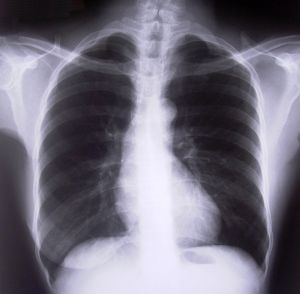Toland v. Colvin, a case from U.S. Court of Appeals for the Eighth Circuit, involved a claimant who filed for both Social Security Disability Insurance (SSDI) benefits and Supplemental Security Income (SSI) benefits under separate sections of the Social Security Act.
 The claimant’s applications were initially denied and then, upon reconsideration, denied again. Your Boston SSDI lawyer understands that almost all applications receive denials upon the first and even second review. This does not mean claims aren’t worth pursing.
The claimant’s applications were initially denied and then, upon reconsideration, denied again. Your Boston SSDI lawyer understands that almost all applications receive denials upon the first and even second review. This does not mean claims aren’t worth pursing.
The first employee of the Social Security Administration (SSA) to review your application will issue a denial. You can then apply for reconsideration prior to requesting a hearing before an administrative law judge (ALJ). This first reconsideration is often handled at the peer review level, which literally means the SSA employee in the next cubicle over from the first could be the one selected to conduct a review.
In Toland, the claimant requested a hearing before an ALJ, who determined the claimant was not disabled and denied her application for benefits. The claimant then appealed to the district court. The ALJ’s denial was affirmed. She then appealed the district court’s ruling on grounds the ALJ erred in not granting appropriate credit to the findings of her physician.
The claimant based her request for disability benefits on a degenerative disc condition that caused substantial pain her leg and shoulder. Her job as a sales clerk required her to regularly lift more than 50 pounds. According to her claims, she was no longer able to work due to her disability. Her doctor’s notes originally diagnosed her with a mild condition that was alleviated by rest. A few years later, his notes indicated her condition had developed into a degenerative disease that prevented her from working.
After having an MRI, she was referred to a specialist who diagnosed her with chronic back pain and attempted to manage her pain. The SSA had her see a doctor who was contracted by the agency and determined that she did have chronic back pain and, while she could not do a strenuous job such as landscaping, she should work at a job that required less lifting. It was determined that she could regularly lift 10 pounds and occasionally lift up to 20 pounds. It was also determined that she could sit or stand for six hours a day.
The back specialist she was seeing noted she had a normal gait and did not detect any other problems. However, another doctor determined she had a reduction in the range of motion in her back and an asymmetrical gait that was not detected by the other doctors.
At the hearing, the ALJ listened to the information presented by the doctors and a vocational expert hired by the SSA, who determined the claimant could work as either a food checker at a grocery store or a ticket seller. Based upon her ability to work these two jobs that were apparently readily available in the national economy, the ALJ denied her request for benefits.
The court ultimately upheld the ALJ’s denial of benefits because her medical expert’s testimony that she was disabled was contrary to his own notes. The court found this was an appropriate reason to discredit his testimony.
If you or are seeking Social Security Disability Insurance in Boston, call for a free and confidential appointment at (617) 777-7777.
Additional Resources:
Toland v. Colvin, August 5, 2014, U.S. Court of Appeals for the Eighth Circuit
More Blog Entries:
Employers Dropping Long-Term Disability Insurance, July 28, 2014, Boston Social Security Disability Lawyers Blog
 Massachusetts Social Security Disability Lawyers Blog
Massachusetts Social Security Disability Lawyers Blog

